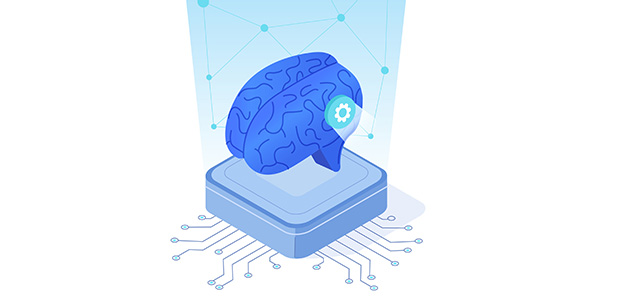
AI poised to play huge role in building strategy, trading education, and automating systems
Chris Weston , Head of Research at Pepperstone, told Moneyzine.com his thoughts on how recent global events have impacted the financial markets:
"Recent events have, clearly, had a significant impact on the financial markets. No matter the event in question, the general impact on the market has been similar, namely a sharp and significant increase in economic uncertainty, sparking an equally sizable surge in market volatility.
"Interestingly, the market reaction to the two events in question was vastly different – the ‘kitchen sink’ policy approach from central banks/governments upon the start of the pandemic allowed risk assets to roar back quickly. However, the stagflationary world that has started to take hold since Russia invaded Ukraine has resulted in a much rockier ride for risk assets, with ever-changing & tightening central bank policy resulting in structurally higher volatility, and stiffer headwinds for equities.
"Going forward, such events reinforce the importance of risk management on the part of traders, given how markets remain liable to make significant moves with very little notice, and with unexpected headlines breaking on a regular, albeit unpredictable, basis.
On the client side, Chris Weston spoke to how Pepperstone approaches risk management, and what strategies they employ to minimise risk:
"We try to talk to clients about the inputs and relationships a market is most sensitive to. These correlations often change, but when we know what is important to market pricing, we can better prepare to navigate both known and unknown event risk.
"This can help our assessment of whether the market sees a data release as a potential volatility event. And ultimately, it can help us make an informed call on whether to close, reduce, or even increase our position over news.
"CFD and spread betting clients time in positions is typically ultra short-term. Depending on the market, traders are typically scalpers or day traders, although swing trading is popular with gold and index traders.
"Recognizing the market environment is also incredibly important for correctly deploying our strategy and managing the risks around this. This includes assessing whether we're seeing a trend day, or price action is choppy.
Chris also gave his thoughts on the most significant trends in financial markets currently:
"Throughout much of Q1, we witnessed an explosion in cross-asset volatility, although at the time of writing calmer conditions are being seen. The lagged effects of 2022’s rapid monetary policy tightening, which saw the Fed deliver the largest cumulative number of basis points bps increases since 1981 were felt – not only via tighter financial and credit conditions, but also as financial stability risks, rear their head amid a string of bank failures.
"On top of that, rapid liquidity withdrawal as central banks embark on quantitative tightening programmes, as well as the death of the long-standing Fed put, also raise the bar for riskier assets to gain ground.
"This, again, showed the importance of risk management in keeping you in the game. Knowing the instrument to trade, being aware of both the macro and micro influences on your chosen market, as well as the liquidity in the market, is pivotal to trading within the kind of volatility regime we are currently experiencing. These will allow traders to adjust their position sizing, as well as stop/take profit levels, as appropriate depending on prevailing conditions.
And finally, moneyzine.com asked Chris about the role of AI and machine learning in financial markets:
"Agility and remaining humble is key – meaning that it’s crucial to be able to change styles as the macro landscape shifts, and not become married to a particular view or trading method.
"It seems too early to gauge the impact of AI on financial markets, given that Chat-GPT (and competing platforms) have only recently made their way onto the radar of the broad public.
"However, AI and machine learning present plentiful opportunities for retail and institutional investors alike. Primarily, the ability to comb through reams of historical data to more efficiently backtest strategies and examine prior macro environments bring a range of different strategies within closer reach.
"Furthermore, the increased proliferation of AI will likely result in more rudimentary and common tasks becoming automated. This will ultimately free up time to allow traders to focus on analysis, positioning, and managing risk exposures.
"It seems like AI will play a huge role in building strategy, trading education, and automating systems. The main question is, should brokers open this up to all traders, and implement systematic ways to build this into their trading ecosystem? Or does this fall on the client? I can imagine all brokers are looking at Chat-GPT/AI very closely to assess how it can improve client outcomes."

